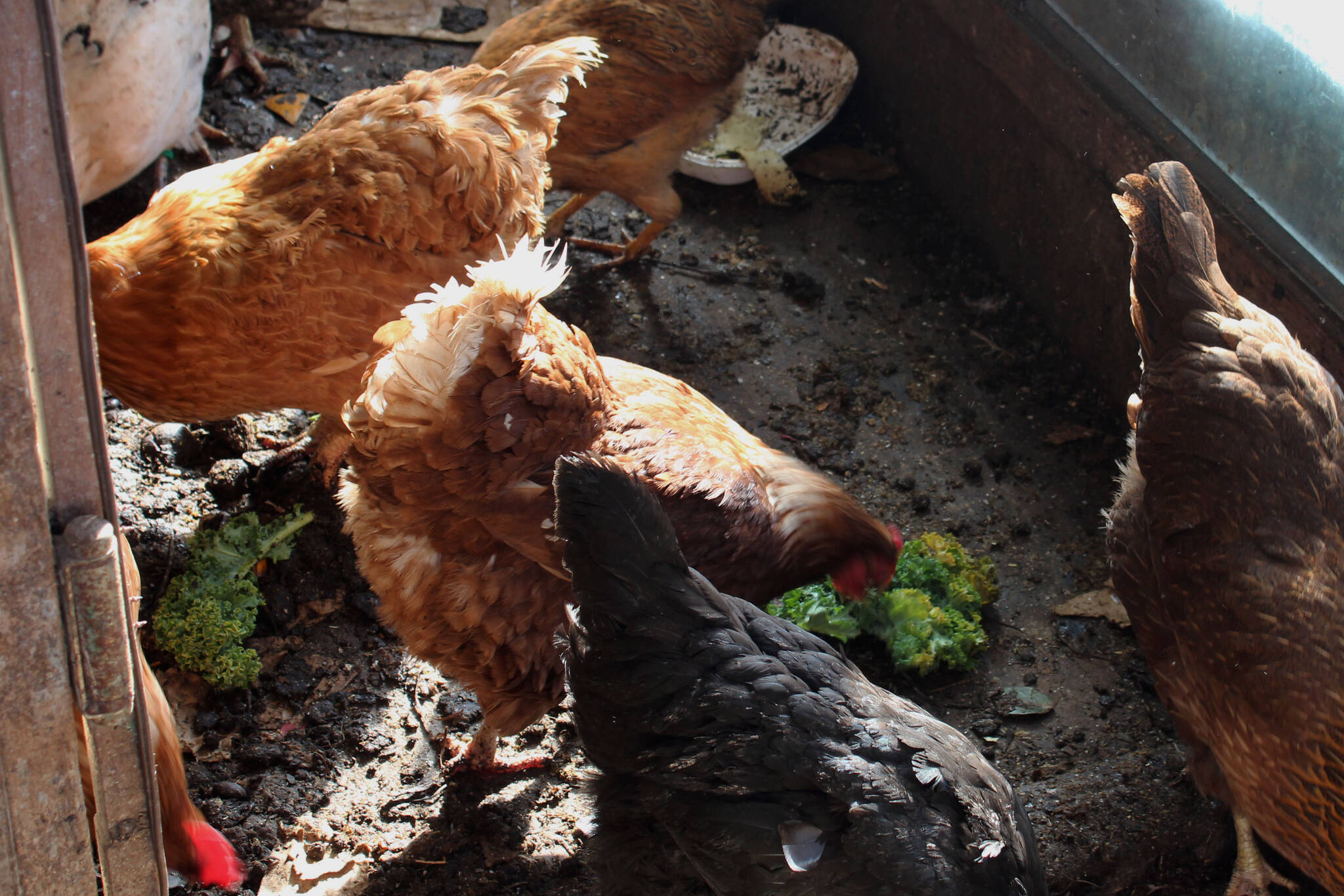The composting capacity of the central Kenai Peninsula will soon increase due to a competitive federal grant awarded to a local group.
The grant, offered by the U.S. Department of Agriculture’s Natural Resources Conservation Service, awarded about $90,000 to the project, administered by the Bridges Community Resource Center, Inc., doing business as Kenai Local Food Connection, according to an Oct. 4 memo from Kenai Peninsula Borough Community and Fiscal Projects Manager Brenda Ahlberg.
In all, about $121,000 will go into the project, including a roughly $90,000 federal share and a roughly $31,000 local in-kind match provided by Bridges.
The USDA invested about $1.92 million into 24 pilot projects through the Community Compost and Food Waste Reduction program this year. Other project recipients are scattered across 14 U.S. states. According to a USDA release announcing the grant recipients, the agency prioritized projects that anticipated or demonstrated economic benefits, incorporated plans to make compost easily accessible to farmers and integrated other food waste strategies.
Ahlberg wrote in an Oct. 14 memo to the borough assembly that the main goal of the Community Compost & Food Waste Recovery Program is to start an initial composting program on the central peninsula with a long-term objective of creating a program that is sustainable and scalable with community involvement.
The project will build on existing composting efforts already underway on the central Kenai Peninsula, such as the Community Compost Project run through Cook Inletkeeper’s Community Action Studio in Soldotna, which came out of a series of community conversations held in 2019.
Jeanette Pedginski, with the Kenai Local Food Connection, said Monday that the program will be offered in partnership with the borough and together with Cook Inletkeeper. Kenai Local Food Connection, she said, is “under the umbrella” of Bridges Community Resources Network.
The Community Compost Project has a stated goal of diverting 50,000 pounds of compostable material from the Central Peninsula Landfill by the end of the year. The group has successfully diverted about 24,000 pounds so far this year. In 2020, the group diverted an additional 24,000 pounds of compostable material.
Cook Inletkeeper Regional Director Kaitlin Vadla said Monday that the funds made available through the USDA will build on what Cook Inletkeeper began. The initial program, Vadla said, was never meant to be an ongoing program, but rather one that the community would bring to fruition and finish.
“It’s very exciting and it definitely builds on what Inletkeeper piloted,” Vadla said Monday of the USDA grant.
The influx of money will fund a new community coordinator for the program, allow the use of bigger equipment and will bring the potential for more compost drop-off sites, Vadla said. In the future, Vadla said she’d like to see the borough expand compost infrastructure at the Central Peninsula Landfill, but that in the meantime the USDA grant will allow the borough to magnify the impact of existing composting efforts.
“I think this is a really incredible opportunity for the borough to catalyze a model that’s successful,” Vadla said.
In reflecting on why Cook Inletkeeper’s composting program has been so successful, Vadla said she learned that the project’s decentralized structure worked for it rather than against it. That structure made the program both simpler and more efficient, which is part of why she thinks it stood out from other grant applicants.
Mostly, Vadla said, she’s proud of all of the community stakeholders who have come together to support composting efforts on the central peninsula. The project was one of 24 selected from a total applicant pool of hundreds, which is something to be proud of.
More information about Cook Inletkeeper’s composting project can be found at inletkeeper.org/compost.
Reach reporter Ashlyn O’Hara at ashlyn.ohara@peninsulaclarion.com.


